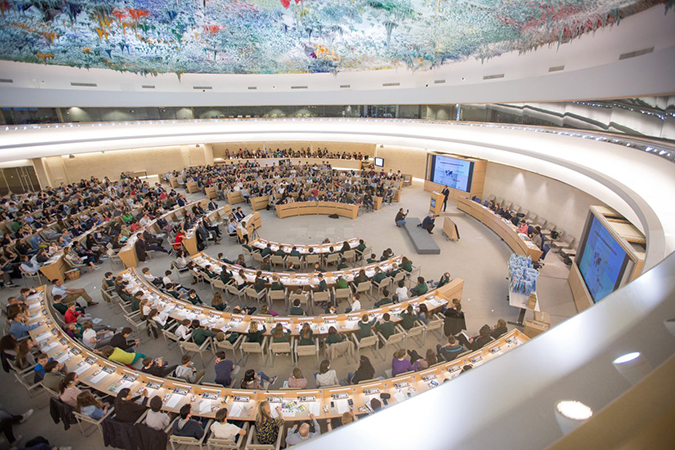The regime’s Ministry of Foreign Affairs stated on Monday that it had rejected a resolution adopted by the U.N. Human Rights Council at its 55th session on April 5, which condemned the violence committed by the military and the restrictions it placed on humanitarian aid deliveries.
The U.N. report was slammed by Naypyidaw as “groundless.” A regime ministry statement released to the media stated that the report “included unfounded and one-sided allegations pertaining to humanitarian assistance and human rights in Myanmar.”
The U.N. has condemned the violence committed by the military since it staged a coup on Feb. 1, 2021. Secretary-General António Guterres has called for the end of all violence and the release of all political prisoners, including State Counsellor Aung San Suu Kyi and President Win Myint – held incommunicado for over three years by the regime.
Naypyidaw claimed that Myanmar attaches “great importance” to providing humanitarian aid to people in need. It highlighted the fact that there are 16 U.N. agencies operating inside the country and that it has more than 1,700 staff, including 130 internationals and 160 locals, working as of February.
It added that it has granted over 1,000 travel requests to U.N. agencies and international organizations, including 550 requests to travel to Arakan State to provide emergency assistance to Cyclone Mocha survivors in 2023.
However, U.N. agencies are restricted from accessing Internally Displaced Persons (IDP) camps nationwide, including the 150,000 Rohingya IDPs who have been confined to camps since communal violence broke out in Arakan State in 2012.
The U.N. states that there are 339,000 total IDPs in Arakan. A renewed conflict between the military and the Arakan Army (AA) began on Nov. 13, further hampering aid efforts.
Humanitarian aid deliveries from international organizations continue to be blocked to Arakan State, and other regions and states of Myanmar, where conflict has spread over the last three years since the resistance to military rule has gained traction.
The U.N. Human Rights Council, which comprises 47 members, backed a consensus last week calling for the international community to ban the sale of jet fuel to Myanmar, as it believes that the military has committed human rights abuses against civilians with its airpower. It called for an arms embargo to be imposed on Naypyidaw.
“This is an important message from the U.N.’s main human rights body that business as usual is not acceptable when supplying jet fuel to those who use airstrikes to commit war crimes,” said Iniyan Ilango, the Amnesty International representative to the U.N.
Tom Andrews, the U.N. Special Rapporteur on the situation of human rights in Myanmar, warned that atrocities committed by the military against civilians will increase as it continually loses on the battlefield to resistance forces nationwide.
The regime’s Ministry of Foreign Affairs claimed that the U.N. did not officially communicate with Naypyidaw about the appointment of Australia’s Julie Bishop to the role of Special Envoy on Myanmar April 5.



